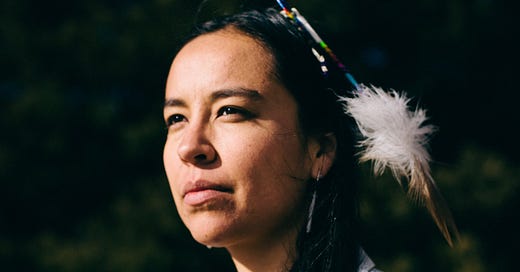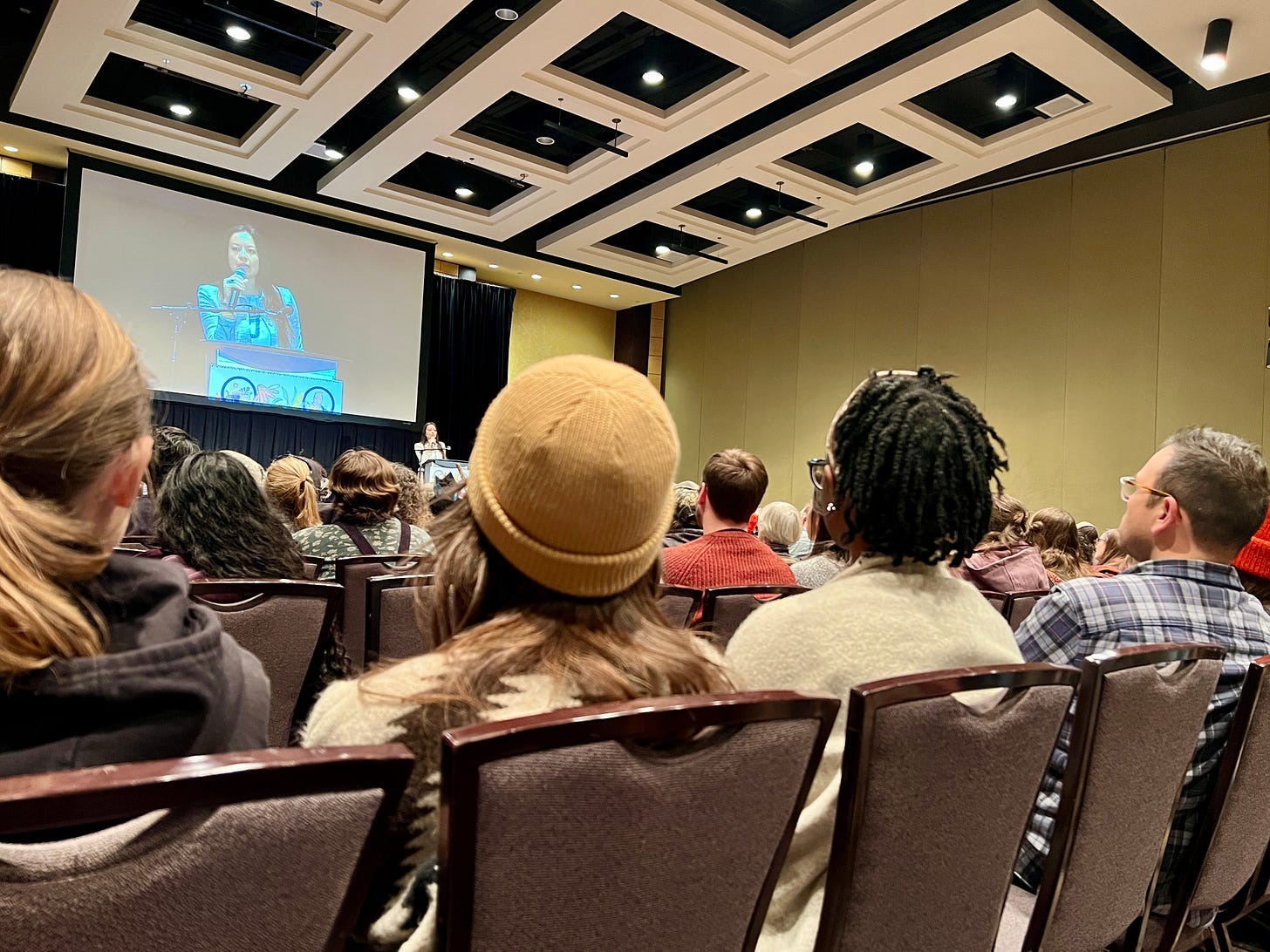Part-storyteller, part-scientist, Dr. Lyla June Johnston imparts Indigenous wisdom
In Other News #16 // Celebrating the stories of everyday heroes among us.
Farming, says Dr. Lyla June Johnston, isn’t only about producing food for humans.
(You may need to read that again, slowly.)
This runs counter-intuitive to the way we Americans think about farming.
Johnston is Native American—more accurately, Diné (Navajo) and Isétsehéstähese (Cheyenne). Indigenous peoples, for thousands of years, have developed much more holistic approaches to the land, she says.
Farming—or more correctly, "food and land management systems"—is as much about taking care of nature, plants and all animals, as it is focused on human needs. In this way, Johnston says farming, caretaking and stewardship of the land can even be thought of as a spiritual practice.
"Creating abundance for all life—I think that's one of our highest callings," she says.
Johnston's concepts, shared in February with a crowd of more than 300 people, had attendees hanging on every word, enraptured. Every seat was filled, and the room was overflowing, with "standing room only."
She was the closing plenary speaker at the nonprofit Pasa Sustainable Agriculture's 34th annual conference held in Lancaster, Pa. For three days, attendees soaked in knowledge from those leading agriculture's sustainable practices throughout the Mid-Atlantic and beyond. Farmers of all types and ages, students, and home gardeners such as myself were all in attendance. And “Lyla June” provided takeaways for all of us.
Indigenous practices might be considered the "OG" in sustainability.
Johnston—part-storyteller, part-scientist—explained and documented a multitude of ways in which Indigenous peoples world-wide both provided for their communities and the greater ecosystem.





